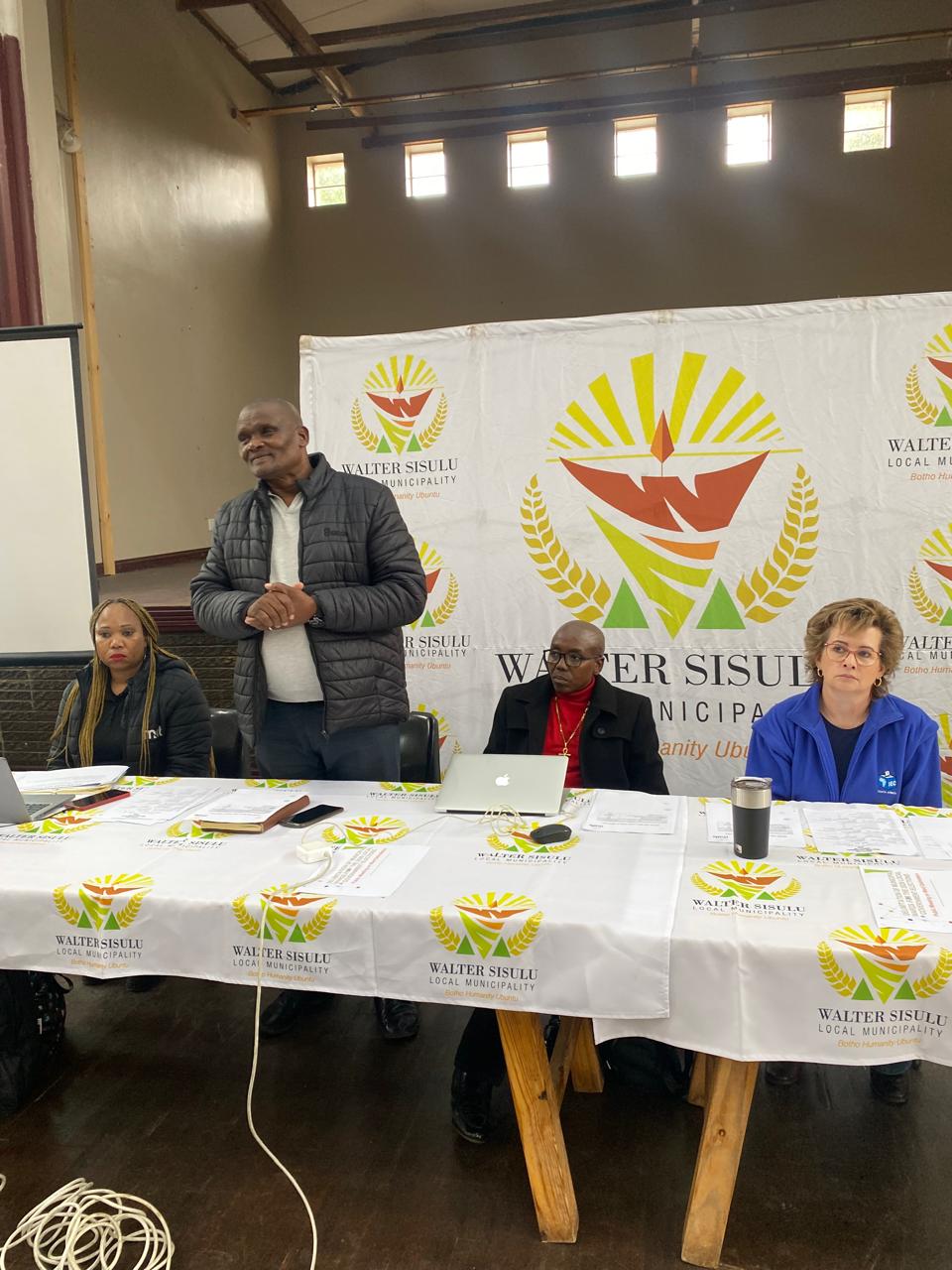Municipal Demarcation Board Begins Ward Delimitation Process

Story: Sinazo Bonongo | Photo: Sinazo Bonongo
The Municipal Demarcation Board has officially commenced the process of Ward Delimitation. This vital democratic exercise began in January 2025 and is set to conclude in June 2025. The objective is to review and, where necessary, reconfigure ward boundaries to ensure equitable representation across all communities.In Walter Sisulu Local Municipality(WSLM) the process is being spearheaded by the Municipal Council under the leadership of the Speaker Cllr Nalisile Mathetha. At the heart of this programme is a commitment to inclusive governance and transparency. As such, the Council has embarked on an extensive consultation process with communities throughout the municipality. These consultations are a crucial platform for residents to voice their views on how wards should be structured. Inputs gathered from the public will play a significant role in shaping the final ward configuration, making this a participatory and community-centered process.
A diverse range of stakeholders has been involved, including Independent Electoral Committee, IEC, Provincial Departments of Cooperative Governance and Traditional Affairs (COGTA), community members, civic organisations. These engagements have been instrumental in raising awareness and deepening public understanding of the demarcation process. During the consultation sessions, the community was thoroughly briefed on the legal and regulatory framework that governs the creation and delimitation of wards. Participants were informed about the criteria used by the Municipal Demarcation Board, which include factors such as population size, geographical considerations, community interest, and service delivery efficiency.
The importance of this process cannot be overstated. Ward boundaries directly impact electoral representation, the allocation of resources, and access to municipal services. By realigning wards to reflect population shifts and community dynamics, the delimitation process strengthens democratic accountability and ensures that local government remains responsive to the needs of its citizens. As the process continues, the Council encourages all residents to participate actively and make their voices heard.
